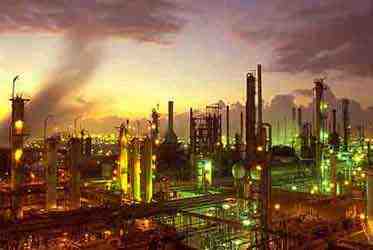Energy Efficiency and Conservation
Energy efficiency and conservation are necessary because energy consumption is a major cause of environmental degradation. All types of energy use result in environmental costs; it is just a matter of degree. And most modern American activities seem to involve energy consumption. Our transportation, food production, manufacturing, government, recreation and household management all consume energy.
At the same time, our major energy supplies (oil, coal, and gas) are finite. They are not renewable, yet we burn these fuels as if there were no tomorrow. The energy supplies that are renewable, such as solar, wind, and thermal, are not being developed and used as widely as they should be.
Given these facts, we need to reduce our energy consumption and the resulting environmental damage to the extent we can, and we need to come into balance with natural energy recovery and production processes. We need to develop truly sustainable energy consumption practices, or our children and grandchildren will suffer the consequences.
Environmental Costs of Energy Consumption
Climate Change
Most scientists agree that human energy consumption from burning fossil and organic fuels (oil, coal, gas, and biomass) and other human activities have changed the chemical composition of the Earth's atmosphere, which in turn will influence the behavior of global climate patterns.
Overall, the atmosphere and the world's oceans are warming, leading to major changes in air circulation and ocean currents. Some countries may experience warming, while others may see cooling. Drought may descend on wet areas, while dry regions become unnaturally wet.
Storm patterns may change drastically in some areas, resulting in catastrophic hurricanes, monsoons, tornados, floods and blizzards. As the oceans warm, the water expands and raises sea levels, which will submerge low-lying coastal areas and islands, affecting millions of people.
Scientists don't agree on how quickly the atmosphere is warming or on all the consequences, but it is safe to say that we're in the midst of a dangerous and costly experiment in weather modification.
Air Pollution
Most forms of energy generation produce large amounts of air pollution as a byproduct (except solar, wind and geothermal). The burning of fossil fuels and biomass will result in carbon dioxide, sulfur dioxide, nitrous oxides, sulfuric acid, hydrochloric acid, dioxin, carbon monoxide, polyaromatic hydrocarbons (PAHs, such as benzo-a-pyrene), ozone and radioactive emissions. These emissions are a direct threat to public health.
Land Destruction and Habitat Loss
The extraction of oil, coal and natural gas are extremely destructive to natural environments. Coal mining and transportation has destroyed millions of acres of natural forests, meadows and farmland across the world and runoff from coal mining has contaminated many lakes and streams.
Oil extraction, refining and transportation have been similarly damaging, with toxic contamination and degradation at the extraction point and at a multitude of small and large oil spills in oceans around the world. Oil refineries are notorious for their toxic air and water impacts. Even natural gas, which is considered a "clean" fuel, requires destructive extraction practices such as fracking, and pipeline practices.
Electrical and transmission lines can also impact large areas of land.
Toxic Contamination
In addition to the toxic pollutants listed under air pollution, many toxic trace contaminants are released from fuel burning, including serious contaminants such as mercury, arsenic, lead, and chlorinated organics such as dioxin.
Water Pollution
The burning of coal, oil and wood also results in fallout from the air of toxic contaminants, such as mercury, that gradually build up in the sediments of our rivers, lakes and streams. Acid rain is still an active concern in many areas, poisoning our waterways, damaging property and reducing the productivity of our forests and croplands.
Radioactive Waste
Despite claims by its proponents, nuclear energy is far from "clean." Uranium mining has despoiled many large tracts of land with direct radioactive contamination and wind erosion of radioactive dusts. After decades of investigation, the nuclear industry has also failed to find a safe means of disposing of radioactive wastes, which are accumulating too rapidly and will remain dangerous for thousands of years. The potential for nuclear accidents or sabotage is also a concern.
Wildlife Impacts
All of the factors above contribute to the loss of wildlife habitat and to poisoning of wildlife. Some species are being decimated to the point of extinction, with climate change likely to push many over the edge. They will not have time to adapt.
Aesthetic Damage
All this damage further reduces our quality of life by diminishing the beauty of the natural world around us.
Resources:
Commission for Environmental Cooperation http://www3.cec.org/islandora/en/item/11474-wood-burning-en.pdf
EPA https://www.epa.gov/mercury/basic-information-about-mercury


